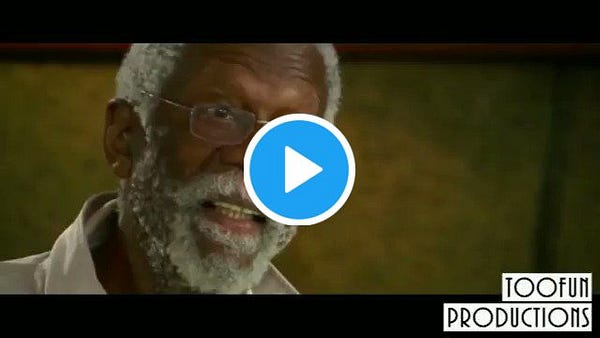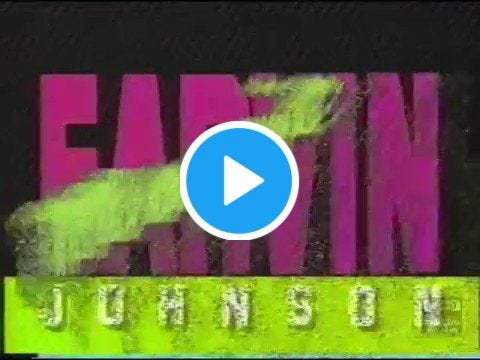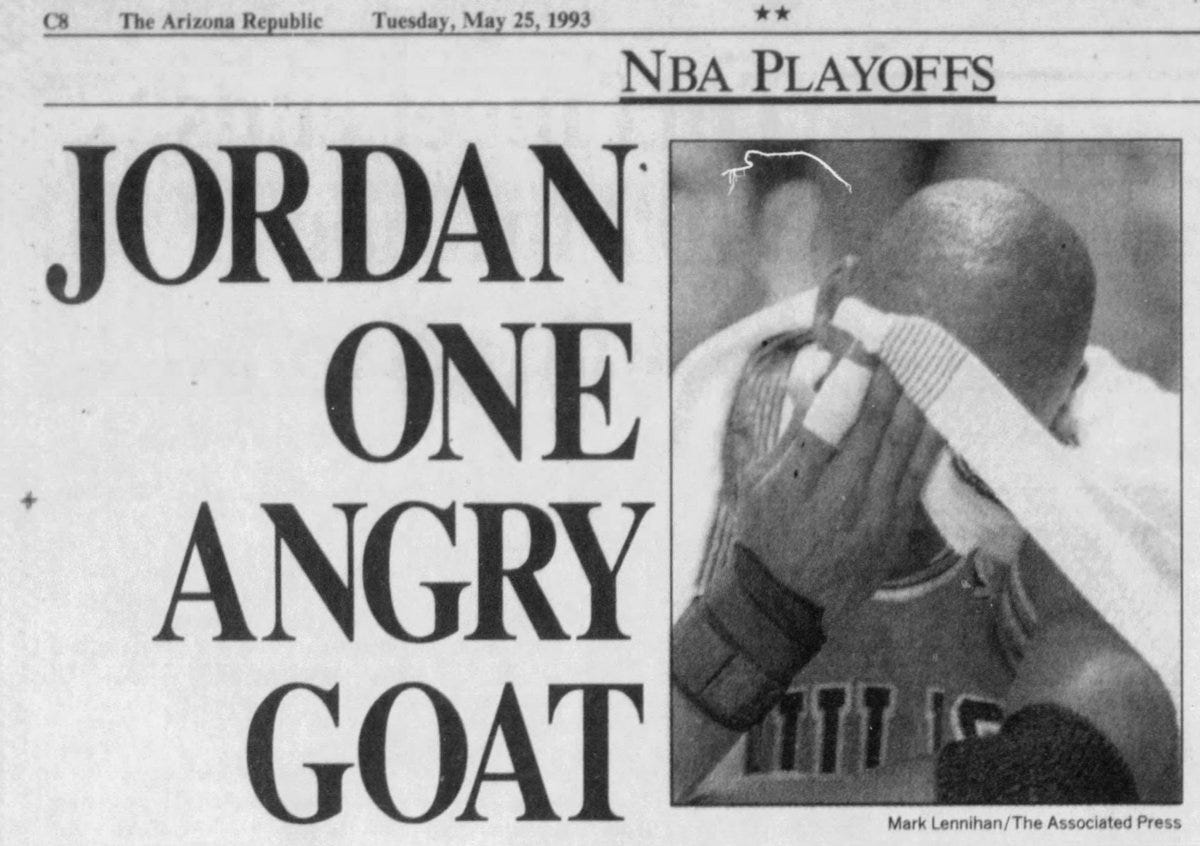How Michael Jordan's greatness made "GOAT" the most annoying debate in sports
How did the NBA GOAT debate became so aggressive and territorial? Look back 30 years ago, to February 1991.
In 2021, where “6-0” is the GOAT debate hammer blow, it might be hard to recall a time when Michael Jordan was simultaneously the clear-cut best player in the league, already possibly the greatest ever and still considered someone who “can’t win.”
But on his 28th birthday 30 years ago today, that’s exactly where he stood.
We think of the first championship as destiny, but as the season played out the uncertainty was sky high, not just about the Bulls’ prospects but MJ’s career and legacy. Go back and read The Jordan Rules some time — that uncertainty is what stands out.
That’s what makes February of ‘91 such a fascinating month in MJ’s history. In a way, it’s a month that shows us what the NBA GOAT debate might have looked like had the Bulls not become a dynasty. The NBA GOAT debate would have been more akin to the NBA center GOAT debate, or the baseball GOAT debate, areas where there is much more room for nuance and disagreement depending on one’s own criteria.
Instead, we now have all this yelling and name-calling and not a whole lot of understanding around what “greatness” even means. It’s how we end up with people saying a quarterback is the “GOAT athlete” when he might not even be the GOAT football player, or perhaps even the GOAT quarterback.
Once upon a time, sports fans and writers understood that sports aren’t about rankings, but about community and memories. They knew the difference between “best” and “greatest” and “most accomplished.” MJ’s greatness ruined all that. He fused those three so completely that it feels as if we no longer bother to pick apart the strands. We no longer look back fondly upon the time when nuance existed in discussing Michael Jordan.
The GOAT debate before MJ
Today, the GOAT debate in the NBA has two groups: the MJ group and the anti-MJ group. The anti-MJ group has largely become the LeBron group, with smaller factions for other players, led by Russell, Wilt, Kareem and Oscar, with more personalized, even smaller factions favoring Doc, Magic, Bird, Elgin, Kobe or Shaq.
So, how did we get here? How did we get to a place where the GOAT debate was so intensely personal, and so focused around just one player? During the 2017 Finals, I posed this question to Scoop Jackson, Rick Telander, Peter Vecsey and longtime S.I. hoops writer Bruce Newman: “How did the NBA GOAT debate evolve pre-MJ?”
Scoop’s answer: There was no debate. He didn’t mean it derisively. He meant it literally:

One great example comes from February of 1988. Red Auerbach publicly stated his backing of Larry Bird as GOAT, and basically no one cared.
“If I had to start a team, the one guy in all history I would take would be Larry Bird,” Auerbach told the crowd at a $1,500-a-couple charity dinner. “This is the greatest ballplayer who ever played the game.”
Maybe Auerbach said this because of the occasion — the unveiling of a $250,000 Bird statue — but what strikes me from our modern vantage point is that as far as I can tell, Auerbach’s comment did not create a national commotion. All of the newspaper reporting on the charity dinner, for instance, featured Auerbach’s comment in the middle of the story.
This was back at a time when folks were allowed to have sports opinions without incurring a caustic backlash. Keep in mind that when Auerbach made that comment, MJ was on his way to a scoring title, Defensive Player of the Year and MVP — the same MJ who Bird had two years prior called “no question … the best basketball player in the league.”
How MJ changed the GOAT debate
The day of that patient NBA discourse is long gone. Just five years ago, Phil Jackson compared Steph Curry’s game to Mahmoud Abdul-Rauf’s game and then felt like he had to defend himself.
What changed? I think it’s a three-part answer. First, MJ had no holes in his game, so he was getting “greatest in the game” talk and some “greatest ever” talk even before he won a championship. He was the game’s best offensive player and one of the best defensive players. Offensively, he scored like no one since Wilt, but he also showed enough prowess at point guard in 1989 that people knew he had the all-around chops of Oscar, Magic and Bird.


Second, his championship blitz in the 1990s left him with two unassailable numbers. His six titles tied him with Kareem as the league’s modern record holder for most rings of anyone in the GOAT discussion, while his six Finals MVPs gave him the most ever.
(The award did not exist until Russell’s final title, 1969, but one Celtics-centric site plus one other site each project Russell with five, which would have hypothetically tied him with George Mikan.)
The second key number for MJ in today’s GOAT debate is “6-0” — he’s the only modern GOAT candidate who went undefeated in the Finals. (Don’t get me started on Russell, who modern fans routinely disrespect, and who went 11-1 in the Finals in his 13 seasons, while also leading the Celtics to a 10-0 record in Game 7s.)


February 1991 — MJ and the GOAT debate
The third thing that changed the GOAT discussion, of course, and laced it with an aggressive pro-MJ (or sometimes, aggressive anti-MJ) edge is marketing and media. “GOAT” became a storyline unto itself, a malleable concept to be debated ad nauseam, with little interest in historical context or anything that could be confused as “good natured.”
That’s why February 1991, the month that MJ turned 28, is so interesting: He was already revered at GOAT levels, but his lack of a championship gave him a historic Achilles heel. This wasn’t unprecedented; Wilt (30), Oscar (32) and West (33) each broke through to a championship past the age of 30. MJ was younger. Dr. J. was in his 20s when he won in the ABA, but was 32 when he won his NBA championship.
In other words, the GOAT debate was not yet so territorial, and not yet so personal, and not yet tied to rings. It wasn’t even yet the “GOAT” debate — this was still a time when “goat” referred to a loser, rather than its popular acronym today “Greatest Of All Time.”
So, where did MJ stand in the GOAT debate in February 1991? Let’s take a look:
According to Sports Illustrated for Kids, MJ was America’s most popular athlete.
MJ was the NBA’s leading scorer and, not surprisingly, the leading All-Star vote-getter.
MJ was the GOAT according to his own boss. While reacting to MJ’s anger that Jerry Krause did not trade for Walter Davis, Jerry Reinsdorf called Jordan “the greatest player who ever lived.”
MJ was the de facto All-Star Game host, with the game in Charlotte.


The groundbreaking release of Michael Jordan’s Playground
I’m breaking this bullet point into its own section, because Michael Jordan’s Playground probably says as much about where the GOAT conversation was in 1991, and where it would grow, as any other single archive.
This was a huge deal.
His previous tape, Come Fly With Me, had sold 396,000 copies in two years; CBS-Fox sought to build on that, and made waves by making Playground the first sports video to combine highlights with an original storyline. (This from Jake Malooley is a great piece on MJ’s VHS empire.)
The marketing of MJ and his greatness through visual media — specifically videos and his commercials — went a long way to shaping how a generation of fans and writers understood the concept of “Michael Jordan.” For cynics who claim that Jordan is as much a media creation as an on-court sensation, Michael Jordan’s Playground is part of their argument.
Yet consider the number of NBA super stars who appeared in the video to talk Michael up. This is a guy they were all trying to fend off, yet here they are appearing in his own video to gush over him. I would love to know if they were paid for these on-air compliments — maybe Jake knows — but they always seemed genuine to me.
A sampling of the adoration:
Magic Johnson: “He’s special. And I think there are only a few players that come around and are special.”
Clyde Drexler: “He’s a pro’s pro. And we even like to see him play when we’re not playing against him.”
Karl Malone: “You watch him, and he do something, and you be like, ‘I wish he could do that again.’”
Mitch Richmond: “He flies. He plays above the rim. He makes some moves that it seems like you guys are in high school.”
Joe Dumars: “I can’t see anybody 20 years from now saying, ‘He was okay for his time.’ I think he’s going to be okay for the time before us, now, and 20 years down the line. He’s going to be someone people look at and say, ‘He’s unbelievable.’”
Michael Jordan, February 1991: A GOAT with no rings
Thirty years later, Michael Jordan’s Playground is a wonderful time capsule, because it captures MJ at a time when he was the best in the game, perhaps the greatest ever, yet not a champion. There’s even a large section of the movie that just shows his playoff losses to Detroit.
Guys in the movie acknowledge that he is scary at crunch time and always wants the ball, yet there his biggest NBA postseason moment to that point is still The Shot. That was the tension around MJ in February 1991 — MJ the man, the player, the myth and the character.
On February 10, the day of the All-Star Game in Charlotte, Ailene Voisin of the Atlanta Constitution wrote an MJ profile that I think would be stunning to anyone who was not around then and can’t imagine a time when MJ wasn’t one of sport’s greatest winners.
The piece — titled, “The man who has it all… almost” — showcases a brilliant, beloved yet frustrated MJ. Writes Voisin:
“Jordan himself has seen it all. … But as he ages — and at 28, Jordan is encroaching on NBA middle-age — individual tributes mean little. What he really wants? What he really covets? Magic has five of them. Bird has three. Thomas has two. But like his pal Barkley, Jordan has none. After 6 1/2 years in the league, no championship ring for Michael Jordan. And he is becoming inpatient.”
You can almost picture a world where the Bulls lose in ‘91, and maybe in ‘92 too, and MJ finally gets a ring but later, and maybe he just wins one or two total in his entire career. It’s difficult to imagine MJ never winning a championship, but let’s say he had Bird’s Finals record (3-2) instead of his 6-0, that opens the door for some flexibility in the GOAT debate some three decades later.
In fact, without MJ’s sheer dominance in all respects, the GOAT debate as we know it today might not exist. It might not be so nasty and hyper-charged and often bereft of accuracy. It might be more like what Scoop described: an ever-changing, personal choice.
As a Bulls fan, obviously I’m happy that MJ’s career played out the way it did. But I wouldn’t mind a break from the GOAT talk now and again.
-
-
-
A NOTE FROM JACK: Hi all! Thanks as always for reading and supporting my work. I started this newsletter a year ago during All-Star Weekend in Chicago — what would turn out to be my final public outing before COVID. (And the night I spotted Big Gheorge!)
I know that in the past few months, my output here has diminished. And I appreciate how many of you are paying subscribers, and even new subscribers! I have about eight interviews currently in the can with much more to come; I just have not been able to carve out the time to run these newsletter posts.
Please know that I appreciate each and every one of you, and that there is plenty more happening with this newsletter — not to mention the book I’m building toward. For those of you who have subscribed, I hope you’ll continue to do so! For those of you who have the free sub, I hope you’ll consider subscribing! As always, feel free to email me with questions, comments or requests: readjack6@gmail.com.
I hope everyone is doing well and staying safe and healthy during these extremely difficult times. All love to everyone in Texas fighting through power outages and all other snow-related challenges, and to anyone else struggling right now. Here’s to better days, and much more 90s Bulls talk along the way. Thanks again for your support, in all of its forms. I really appreciate it.
Cheers,
Jack



